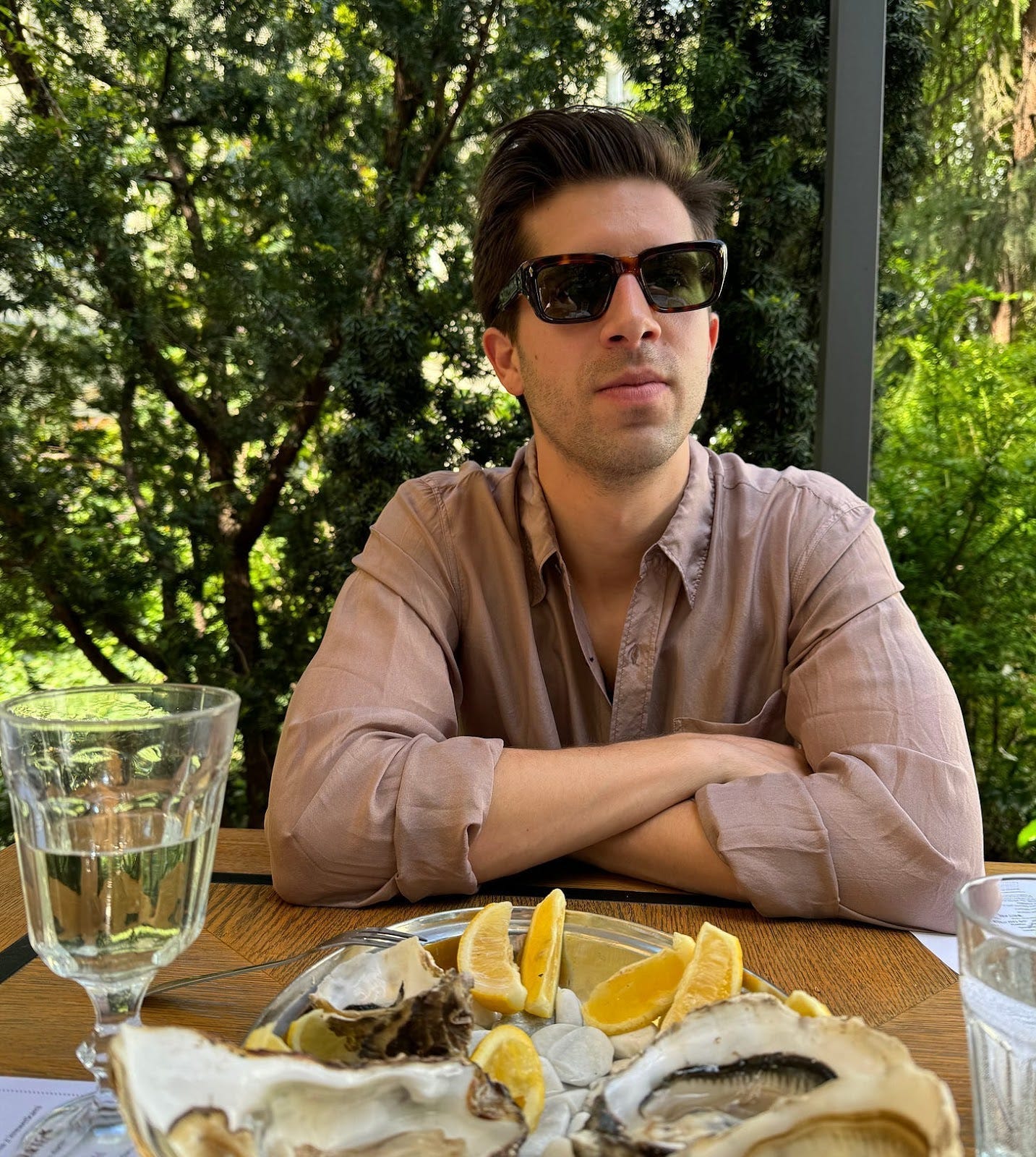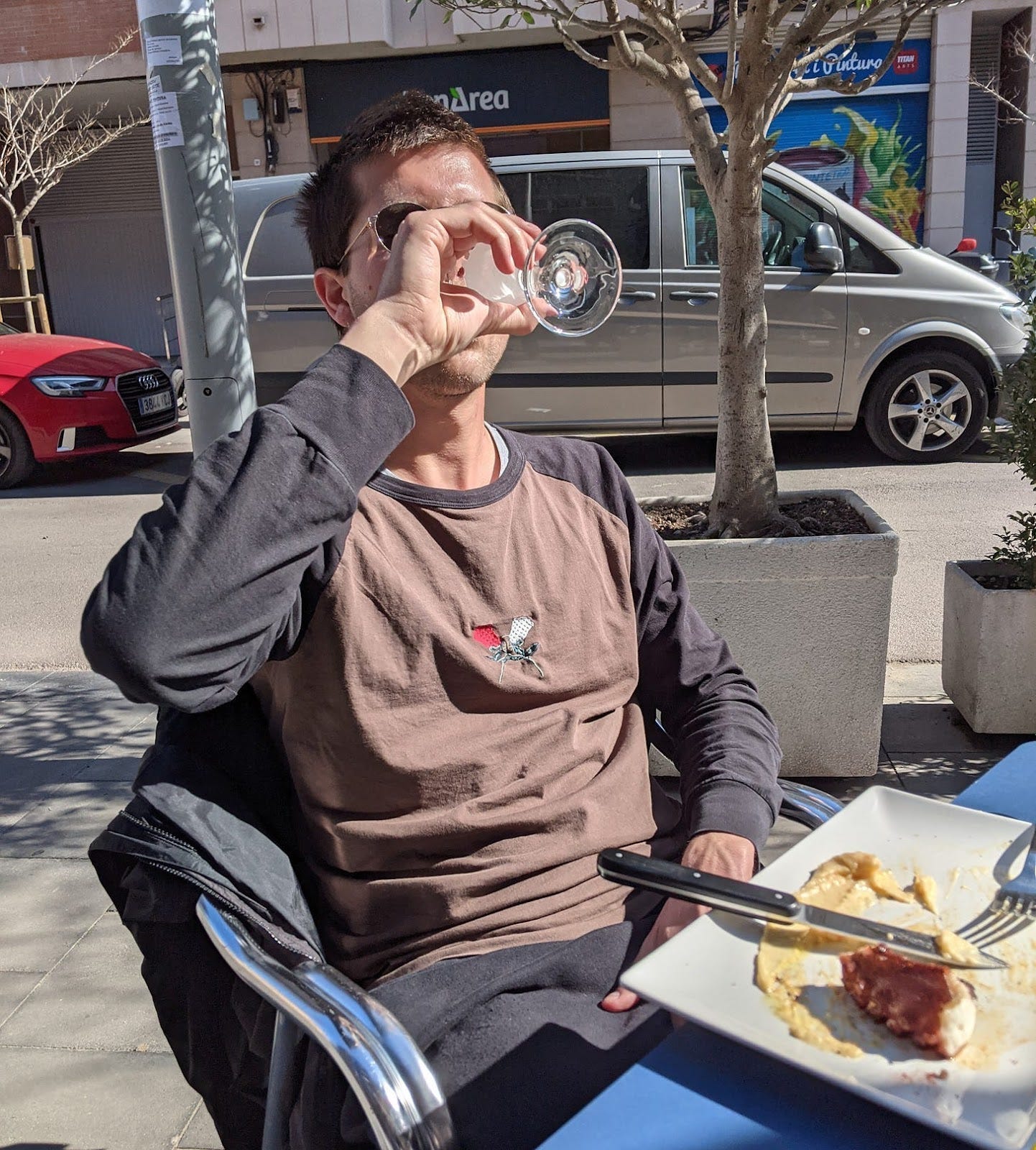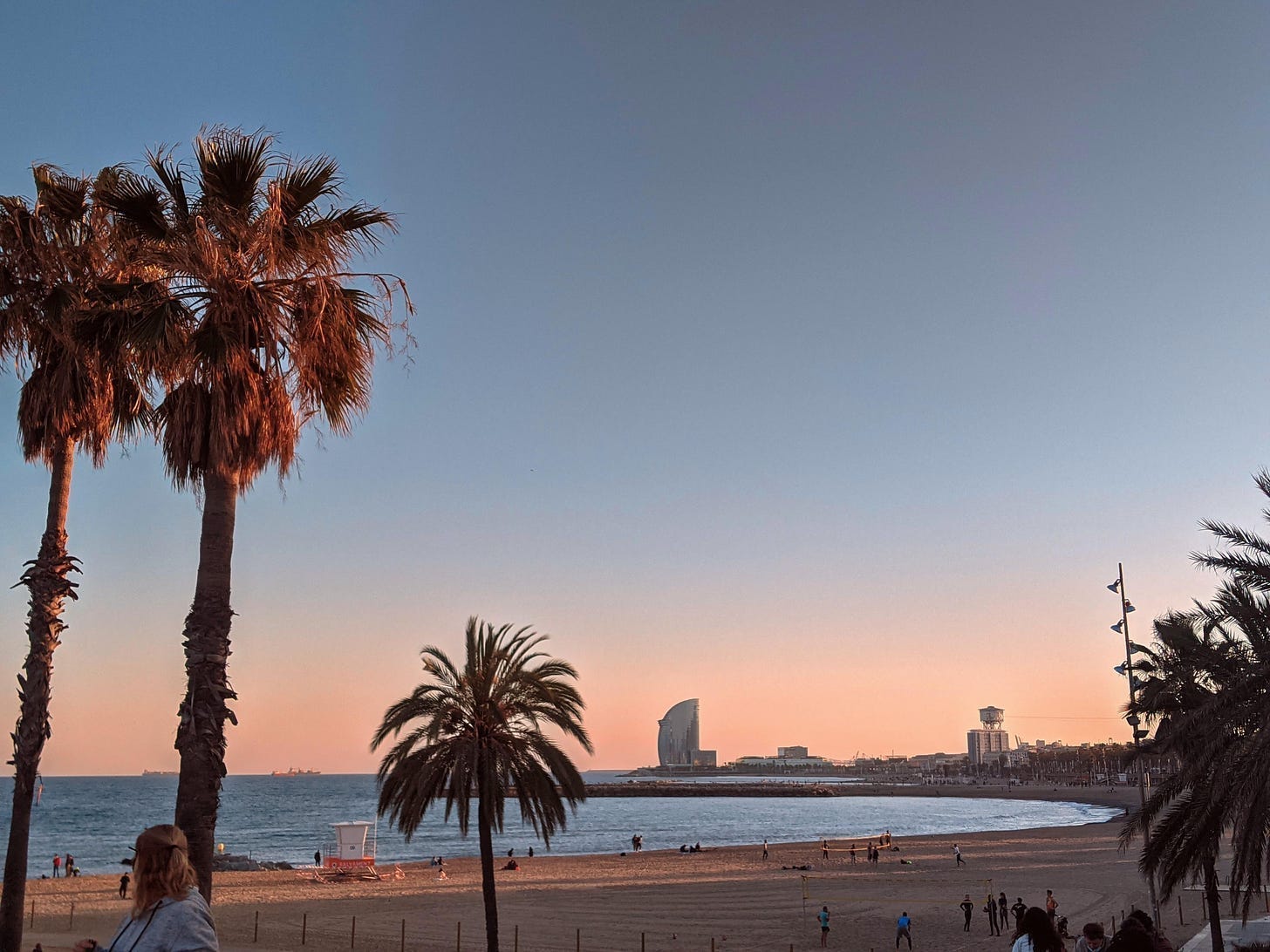A European Developer Journey In Big Tech
With so much focus on the US, there's a lot of opportunity in Europe-if you can find it.
Hi folks,
This week we welcome Nicola from The European Engineer. He will share his multi-year experience finding a fulfilling and lucrative job in big tech—with a European focus.
Let’s take a seat, open a bottle of wine, and take our time to enjoy his story.
Hi everyone,
Nicola Amadio here.
I am a software engineer and content creator based in Zurich, Switzerland, and the author of The European Engineer newsletter.
I grew up in a 50k people town in central Italy, from parents who never went to university, as the 3rd of 4 children.
When I was 19 years old, I didn’t know what to do with my career and life.
I liked science and entrepreneurship, and I enrolled in a BSc in Robotics Engineering program, dreaming of a tech career that could be both fun and financially rewarding.
2013-2016: Challenges of Tech Careers in Europe
My uni was supposedly the best in Italy—but I found its program to be outdated: very theoretical, and consisted of almost no coding. It was rigid and did not allow students to choose classes, while simultaneously having demanding exams that often focused on irrelevant nitty-gritty details.
The environment was also not the best. My colleagues would just focus on passing the exams, deferring any plan or career strategy until after graduation.
The jobs that would wait for us in Milan after graduation had terrible wages: €20-30k gross compensation, mostly in consultancies that worked with old-school clients in boring projects.
Meanwhile, engineers in Silicon Valley made six figures, worked in offices with no dress code, with free food and other perks, and were building world-changing technology.
I wanted something like that too, but didn’t know how to get there.
2016-2018: Early Jobs in Italy
After graduation, I got a couple of jobs in Milan, that, to be fair, weren’t all that bad.
They had:
Nice colleagues
Good, relaxed office vibe
Amazing Italian food for lunch
Exposure to interesting technology
Pay, of course, wasn’t high, but also not the worst for Italy: €40k per year.
I was happy, but I’ve always known that eventually I would leave: in Italy, unfortunately, opportunities are limited, and leaving the country is almost a foregone conclusion for ambitious people like me.
Moreover, I am a traveler.
After having spent my childhood doing sailing competitions all around Italy, as well as having done a semester abroad in Germany during high school, and a semester in Spain during my BSc, relocating felt normal.
2018-2019: My First High-Paying Job in Zurich
After spending some months looking for jobs in other European countries, I ended up with a 80k CHF (approx. €85k) job in Zurich, to work as dev for an international company.
This was already a lot of money for me: I was not rich, but I felt like it.
Nonetheless, I was just 23, and while the pay was relatively good for my age, my job consisted of building banking software for a Fortune 500 company, which I found boring.
I wanted something more for my career.
I craved:
Working on the forefront of exciting technology
Making exceptional money
My €85k Fintech job, while it wasn’t bad and afforded me financial comfort, didn’t match my aspirations in either of these two aspects.
I have always been someone who’s innately curious. Someone who tends to pick up things left and right because I wanted to know how they worked, not because I had to. Someone who wasn’t afraid to ask questions of others and reach out to people because I wanted to know, for myself.
So I started to contact other engineers in the area who had the exceptional careers I wanted.
Google has a big office in Zurich, with more than 4000 people.
Therefore reaching out to engineers there felt like the obvious next step.
I started cold DMing people on LinkedIn who worked there. And they responded.
What I learned was that:
Their job was actually exciting: they were working on products like Google Shopping, YouTube, and were employing the cutting edge in ML. Their software was operating at global scale. And the office was just as cool as I thought it was from the outside.
Compensation was even higher than I imagined: I thought people in tech, even those working in Silicon Valley, were making $100-150k per year, maybe $200k+ after decades of experience. But then I learned that devs in Google Zurich were making $150k+ after school, and $300k+ as senior devs with just a few years of experience.
Naturally, that caught my attention. I started asking these engineers for career advice.
They were helpful and told me about what to expect with coding interviews and offered to give me referrals.
Today, everyone knows about big tech salaries and coding interviews, but in 2018, these things weren’t as well known. Especially in Europe.
Gergely’s article on the trimodal nature of dev salaries in Europe, for example, only came out in 2021.
(BTW, Gergely was one of the people I reached out to on LinkedIn asking for career advice at the time, and he was happy to help. Thanks Gergely!)
2019-2020: Back to Uni for a MSc in CS
After less than a year in my Zurich job, I decided to use the €20k I managed to save up, to go back to Milan, where I already did my BSc and had friends, and enroll in a MSc in CS.
The idea was to:
Try out research in ML, which seemed more exciting than developing banking software. Then, if I liked it, I could do a PhD and maybe join a company like Google as a researcher.
If I didn’t like it, I could take classes in algorithms and software engineering and use the MSc time to prepare for interviews and target big tech internships (with the goal of getting a return offer for a full-time role).
My BSc was in robotics engineering, so I never really got a good foundation of CS, and this MSc was an opportunity to build that.
During the MSc, I volunteered to help a professor in ML with their research. The topic was Online Learning, which is kind of a mix of ML and game theory.
I liked research, but I realized that the most exciting tech nowadays was being researched and developed in the industry: either in big tech companies’ research labs, or as part of their innovative products.
It seemed to me that academia, especially in Europe, was focusing on very long-term research effort, and more on theory.
While this type of academic work is fascinating, I craved more impact.
In the second half of my MSc, I focused on:
Algorithms: which I found both interesting and important for devs, as well as being useful for big tech interviews.
Applied software engineering: to build up skills that I could use in the industry.
Interview prep: to try to land a big tech internship.
After some months, I managed to land a few good offers for internships at some big tech companies in Europe.
2020: Covid, and the Health Costs of being an overachiever
Unfortunately, right before starting my internships, Covid came, and the offers got rescinded.
This was arguably one of my lowest points in life.
While I had faced challenges at various moments before, I never really had to deal with a lot of stress.
Especially work-related stress.
Trying to figure out how to get the best career I could get, and implementing the steps to get there, and with the high aspirations that I had, was a ton of work.
When I started my MSc, I gave up a cushy job with a good salary, betting on myself that I would get a clear ROI from that choice.
Which added to the pressure.
I was running out of money when Covid came and my offers were rescinded.
I had to borrow 5k from friends and family, and went back to my hometown because I couldn’t afford to pay rent in Milan.
This period in my life was difficult and scary.
That said, I had no other option than to keep going and trust the process, so I continued to prepare for exams while looking for internships.
I received an offer for a 6 months internship in a research center in Madrid, and I went there to carry out my MSc thesis on distributed systems’ performance.
At this point, I learned about the bad effects that stress can have on your health and well-being.
After 2 years in which I had been working 24/7, together with all the relocations and the Covid lockdowns, I started feeling tired, stranded, and isolated.
2021: getting back on track
During my semester in Madrid, despite these setbacks, I continued working on my MSc exams and thesis, while also continuing to apply to big tech internships.
Finally, after a few months, I received an offer to join Amazon for an internship in Barcelona.
The internship paid well for Spain: about €40k annualized salary (roughly €3k/month net).
While the MSc thesis stipend was just enough to pay the bills, Amazon's internship salary allowed me to go out for food and drinks, party a bit, go on dates, and ultimately relieve some of the stress that had been accumulating.
Barcelona is also very enjoyable, and if you are in your mid 20s with a decent budget, it can be fun.
I also had a cool group of colleagues at Amazon, and it was a nice social environment.
2022: back to Switzerland
Junior devs in Amazon Barcelona make around €50k per year, which is good for Spain, but since I had the goal of growing my savings, and had to pay back my debts to my friends and family, I decided to start looking for full-time jobs in Zurich, which as a location pays more.
I didn’t manage to land a big tech job, but I did get a 100k IT Consulting one, and finally moved back there after my internship.
In Zurich, I didn’t feel like I had gotten the clear win that I was looking for when I started my MSc.
After all the effort I put into studying tech careers in Europe, learning about big tech, spending years grinding LeetCode, I was still stuck in a well-paid but, all in all, regular tech job.
I felt like I had worked too much to not get at least get on big tech job in Zurich. One with high compensation on a global scale, cutting-edge tech, and smart colleagues.
So, while I had some economic security I still kept preparing for big tech interviews.
I was doing a good job at networking in Zurich, meeting up in real life people that I contacted on LinkedIn or Blind, sites that played a big role in my learning phase about big tech.
I ended up with at least one contact for every big tech company in Zurich, which allowed me to apply to these companies with a strong referral.
One of the interviews that I managed to get was for a team at Oracle, that worked on MySQL’s cloud-scale backend on OCI, and that’s where I finally got my first big tech job in Switzerland, with a great salary and kick-ass tech.
Closing Thoughts
Navigating Europe's tech market can sometimes feel like playing a game on hard mode, especially if you're ambitious.
Today, I have much more insight than I did a few years ago.
A major misconception I had when starting out was that tech careers in the US are universally better than in Europe.
The reality is more nuanced.
Silicon Valley engineers, for example, face several challenges:
Less job security and weaker labor laws compared to Europe
Higher-pressure environments and often poorer work-life balance
Very high cost of living
High income taxes
In many ways, less livable and less safe cities
More geographical isolation and fewer travel opportunities than in Europe
On average, less healthy food options and lifestyle
A more transactional society where finding a genuine sense of community can be difficult
Europe, of course, has its own issues, but it also offers several advantages.
Remote work is reshaping Europe's appeal to tech professionals.
Those who secure high-paying, fully remote positions can now base themselves in numerous attractive European locations.
The continent offers a wealth of cities with exceptional quality of life, favorable tax rates, and lower living costs compared to North America, especially in Central and Southern Europe.
This combination can ultimately provide a lifestyle that's hard to replicate in the US.
Where to learn more
About a year ago, I launched my free newsletter, The European Engineer, to share insights from my experience as a tech professional navigating Europe.
I then expanded to LinkedIn, where I've grown a following of 27,000 over the past 7 months.
Currently, I also run a job board and a coaching program to help people build successful tech careers in Europe more quickly and easily.
If you're interested in any of these initiatives, be sure to follow along!
Lastly, thank you Steve for the opportunity to share my story here. I greatly appreciate it.
30 Things I Wish I Knew In My 30s
This week I released a new video. It’s chock full of advice I wish someone gave me when I was younger.










What the interview does not mentions is that Nicola left his so endorsed big tech company after less then two years. Sounds like he was let go.